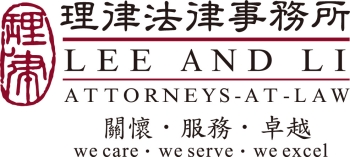The Taiwan Intellectual Property Office (TIPO) embarked on an overhaul of its invalidation examination guidelines when the new Patent Act was implemented on January 1 2013. One of the important issues in the revised guidelines is that a "specific patent agency will examine all or part of claims requested in the scope of invalidation statement on a claim-by-claim basis and record a decision on respective claim". The claim-by-claim petition for invalidation and the claim-by-claim examination stipulated in the new law have made post-grant amendment of a patent with an invalidation action filed against it more complicated.
The following question was raised at the public hearing:
"How will the post-grant amendment requested by a patentee during the administrative remedy period be examined when the decision on an invalidation action filed against the patent finds the action against some claims (of the patent) grounded and some other claims groundless?"
In response, Page 5-1-13 of the guidelines provides:
"When a decision rendered on an invalidation action during the administrative remedy period finds the action against some claims grounded, the decision is final and binding on the revocation of patent right on those claims. Thus the patentee may only request post-grant amendment of those claims that were not invalidated in an invalidation action. However if the requested amendment involves claims that have been invalidated in the original decision, the amendment request should be rejected."
The following question was further raised at a meeting between TIPO, the Intellectual Property Court and the appeal board:
"The earlier question concerns prior invalidation action during the administrative remedy period. But how will the matter be dealt with if the patentee requests post-grant amendment along with a later invalidation action?"
TIPO has indicated in its Compilation of Practical Cases of Patent Application and Invalidation Action (published December 31 2015) that the amendment and later invalidation action will be consolidated and any decisions will be rendered jointly. However, it will still be decided first whether the amendment involves any claim being invalidated in prior invalidation actions. If the amendment does involve invalidated claims, the patentee will be notified to delete any amendment on those parts and asked to submit an entire scope of claims following deletion. To prevent stalling proceedings, the notice will be given once only. If the patentee fails to make a correction within the given period, the amendment request will be rejected with the reason stated in the invalidation decision.



